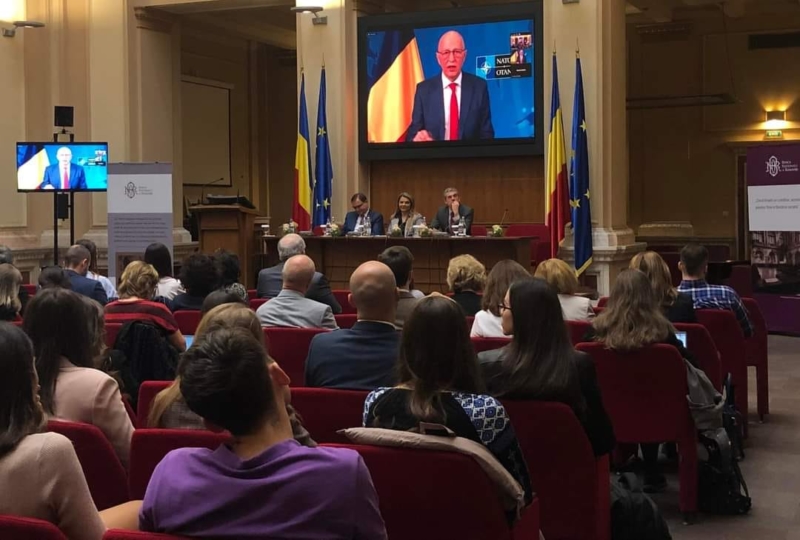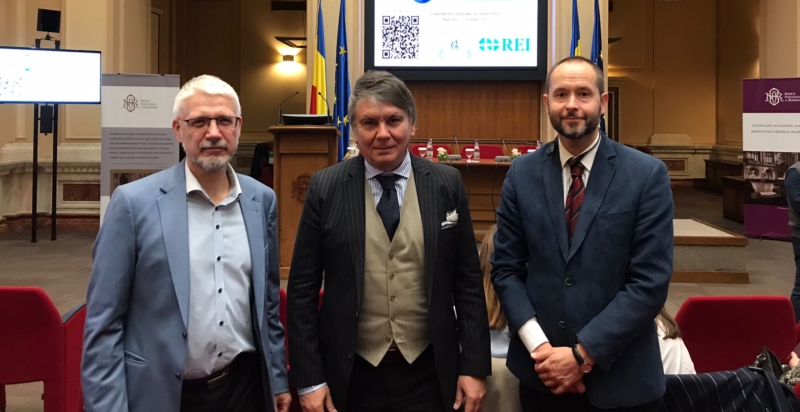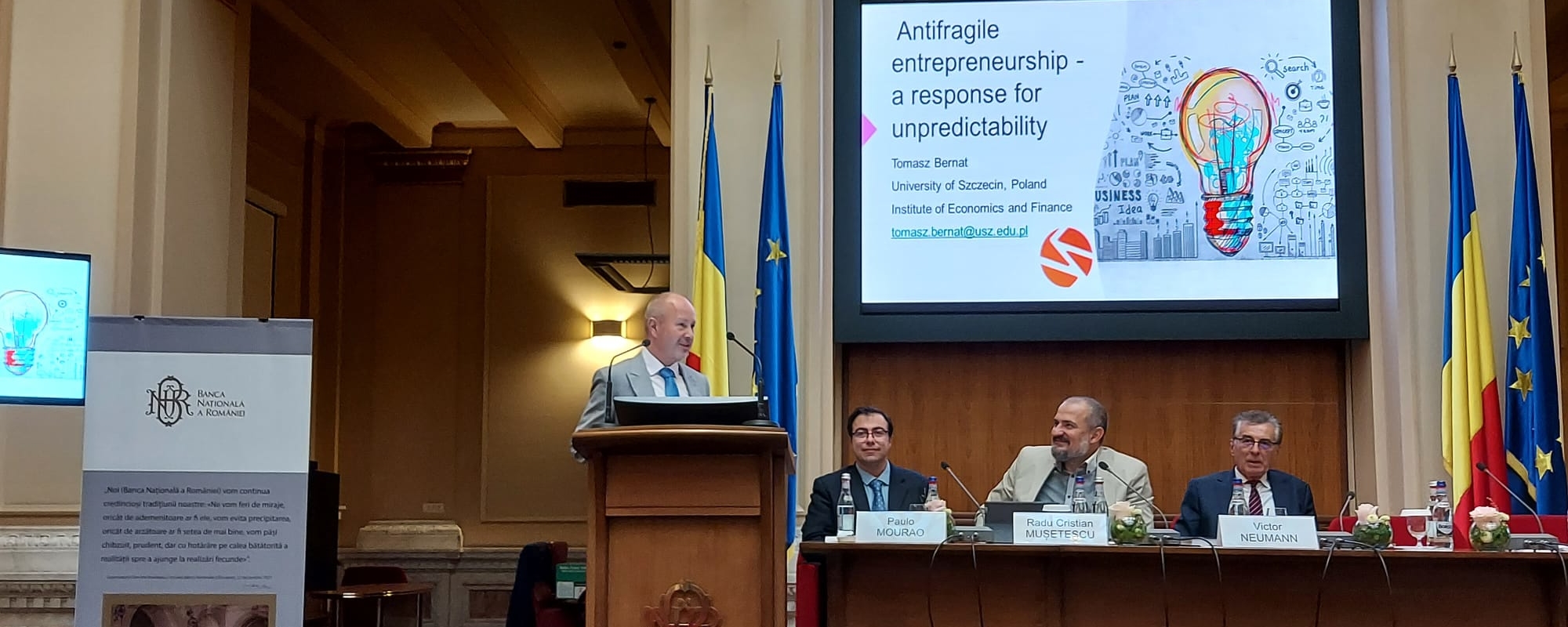28 October 2022,
FAFCE held its 2022 edition of the International Conference on the Economy of the Family in Bucharest, between the 27 and 28th October 2022. Opened by FAFCE Vice-President, Cornel Barbut, the event stressed the pivotal economic importance of the family and its contribution to the welfare of society.

Participants had the opportunity to hear Mircea Geoana, Deputy General Secretary of NATO, who, in the four objectives for Romania he presented, included the increasing of population in order to reach the landmark of 20 millions inhabitants. He gave as an example the similar situation of Ireland, who aims to reach 1 million more inhabitants by 2040.

FAFCE Polish Delegate, Michal Michalski, Professor and President of Institute for Family and Society Studies Foundation (Poland) presented the importance of the family as source of socio-economic development: “Families do a lot more than just pass genes, they are major producers of skills. Household work includes activities specific to 25 different professions! Family production thus represents at least 40% of the GDP.” “Children raised in intact families have, on average, higher academic achievement, better emotional health, and fewer behavioral problems”.
Sebastian Fitzek, Senior Researcher, Institute for Quality of Life Research, Romanian Academy and visiting professor in Vienna, introduced his study work on “Starting a family and futureplans of young NEETS in South Western Romania”. 120 respondents from South-East region of Romania answered questions regarding their vision of a future career and starting a family. He stressed the phenomenon of brain drain of young people from Romania. “A third of the respondents tends to go to Western countries to find a job and start a family”.
Dr. Balazs Molnar, Vice-President of the KINCS Maria Kopp Institute for Demography and Families (Hungary) discussed the need to “Strengthen families for a more competitive country”. He stressed the economic relevance of Hungarian family policy, through family tax reduction, family benefits, the recognition of the unpaid care work of parents, pension entitlements, and family-friendly measures on energy prices.
FAFCE Policy Manager, Bénédicte Colin, introduced a European perspective to the relevance of families to social systems, especially through the services it provides: childcare, long-term care, education, counselling, mental suppor, and social inclusion. “One of the strongest good and service that family produce are relationships.” When it comes to the family-work life balance of parents, “investment in labour market participation is one positive investment one the short-time, but the investment on family time has way more returns on investment in short, mid and long term: people coming from and living in happy families are happier, are better workers, have children, who will pay for their pension and social systems, if not care for their elder, and therefore overall contribute even to the expansion of the labour market.”

Victor Tudoran, PhD, Senior Managing Partner at QUEENABLE SRL, concluded the panel with a presentation on ”The SME ecosystem and the influence on the families involved”. Even within family businesses it is necessary to maintain a balance between family and business: as an example, on the question of cash-flow management, families often lack financial education and fear to work with specialists.
On Friday, participants listened to two presentations on best family-friendly practices from Italy and Hungary. Tiziana De Marino, from the Marco Vigorelli Foundation, presented the results of a research on the “Corporate Family Responsability”. This notion shifts the responsibility of companies towards the families of employees and their relationships. It offers within the company “a centrality of relationships that transforms the family-work duality into an opportunity for dialogue” , and within the family “a reconciliation understood as a “making peace” between the expectations of work and the needs of the family.”
Pr. Sarolta Molnár, from the Pázmány Péter Catholic University, presented a European Legal Understanding of Family, where she stressed the impact of the legal definition of the family and its inscription in the Constitution on the legal treatment of families.







